Description
At least until 1973, Madison Square Garden was the holy ground for ZEP, rather than the LA Forum. As proof of this, the final performance of the 1973 tour, where “Eternal Poetry” was performed, was held there. Thanks to their energetic tour of the United States throughout 1969, ZEP had grown into a group that toured American arenas during their spring 1970 tour. In the spring of the United States, their first performance at the LA Forum was held in March, but this was only part of the tour, and ZEP did not have any special feelings for the venue. Rather, MSG was the venue that the group longed for. The venue already had the status of a rock hall of fame, as big groups such as Cream and the Rolling Stones had performed there. The tour from March to April 1970 played a sufficient role in gaining greater popularity in the United States. So they immediately got an offer to play two shows in one day at MSG on June 27th, but this was canceled due to the cost of traveling to the US (including the band’s equipment) just for one gig, and above all because they had an offer to perform at the Bus Festival the next day. In other words, the plan for the MSG finale show in September was already made at this stage. After the Bus Festival, they spent time putting the finishing touches on the album “III”. The next US tour should have started when the album was completed and released, but because they had difficulty working on the elaborately designed album cover, the tour started without waiting for the release. That was the US tour from August to September. Even though the album had not yet been released, this tour was an important tour that determined the explosion of popularity in the US. Of course, it was also important in another sense. Yes, that masterpiece “LIVE ON BLUBERRY HILL” was released. Not only was the sound quality amazing, but the incredibly high energy performance was vacuum packed, and the fact that ZEP’s performance at the LA Forum was recorded for the first time was huge. This was the starting point of ZEP’s LA Forum legend. However, this tour had a much-anticipated finale in New York. The performance at MSG, which could not be realized in June, was finally realized. This must have made the members of ZEP aware of their success. If that was the case, they would have been happy to be on the MSG stage, even if they didn’t mind the heavy work of performing twice a day on this day. However, ZEP in 1970 had a longer performance time per stage, so they had graduated from the format of two shows a day. The only exception was the Honolulu performance on September 6th, which was held twice a day (we have already released it in our store “HONOLULU 1970”). There, they performed two stages with a short set that cut several songs, but here at MSG, it was hard to perform two shows with a normal scale set. Even so, it is easy to imagine that ZEP’s performance at MSG was very meaningful. Thus, ZEP, who had become big in the United States, realized an MSG finale that was worthy of decorating the final day of the 1970 US tour, but the whole picture was surprisingly shrouded in a veil. This is largely because only the sound source of the afternoon show was in circulation. In addition, it is understandable now that the sound source of the evening show has been unearthed, but the afternoon show was the first show, so it seems to be conserving its energy. If you listen to only this show, it cannot compete with Blueberry Hill. Even though it was such a conserved show, the voltage still remained at a comfortable high level, which is typical of ZEP in 1970. As expected, Plant’s scream voice explodes from the opening, and the bargaining between Page and Bonzo, who have excellent footwork in “Bring It On Home,” which can be called the highlight of the first half, is really wonderful, and the compact development of “Since I’ve Been Loving You” is wonderful. Page’s guitar playing is really smooth at this time. Another reason why this time seems quieter than the evening is the death of Jimi Hendrix. Plant expressed his condolences at each of the two shows that day, and his comments before “What Is And What Should Never Be” in this show were so heartbreaking that you could even feel the pain. You can see that each member was shocked by Jimi’s sudden death. The two shows are mono audience recordings recorded with different tapers, but this one is better in terms of the degree of on-the-sound image. In addition, there are two types of sound sources, and although the “recorder 1” that occupies the majority of the show has a flaw in that the sound image changes periodically, the appeal is that the sound of Page’s guitar is captured vividly and widely, which realistically conveys his elegant playing of this era. “Recorder 2”, which was used after “Immigrant Song” and “Whole Lotta Love”, has a rough sound quality compared to “Recorder 1”, but is still listenable with plenty of room. The evening show was unearthed in 2004. Not only ZEP’s intense high voltage performance, but also the amazing show in which the audience was much more heated up than in the afternoon from the opening gave a great shock to enthusiasts around the world. This is a hyper performance worthy of the big stage of MSG. It’s already a different level of screaming from Plant’s opening “Immigrant Song”. And what’s most amazing is the second half of the show after “Whole Lotta Love”. First of all, the medley selection inserted in the song will leave you dumbfounded at the development, which is on a completely different level from Afternoon. Especially after “Lawdy Miss Clawdy”, Plant, screaming at full throttle, leads the band in a furious development, and in the end, after Oakland, “The Train Kept A Rollin'” starts, which is intense. Even though it’s a song that hasn’t been played for a long time, the members quickly match the performance when Plant starts singing, probably because they played it many times in 1969 and their bodies remember the song. Another shock brought about by the discovery of the evening show is the appearance of the second live take of “Out On The Tiles”. It was thought that the performance in Blueberry Hill, LA, was the only one, but unlike the performance there, Plant sings with a shout throughout the entire song, which is also shocking. The final blow is a storm into “Communication Breakdown”, in which Plant starts singing “Gallows Pole”…it’s just too amazing. ZEP in 1970 performed a single oldies medley as an encore only on special stages, but as was the case at the Royal Albert Hall and the Bus Festival, here too, they performed an oldies medley starting with Little Richard’s song, this time “Girl Can’t Help It”. However, Plant sings on the improvisational performance, and the end ends abruptly. Still, it seems like ZEP in 1970, who still has plenty of stamina, and the finale is a revival of “How Many More Times”, which had fallen from the regular repertoire after the performance at the Bus Festival, to conclude the long day. It was also a shocking development that “Blueberry Hill” was played in the middle of this song. The sound source of the evening show is the sound source of the ZEP vintage live period, which has appeared for the first time in a long time, so it produced many items when it appeared in 2004, but all of the items were equalized to a greater or lesser extent, reflecting the historical background of the time. Many of them were far from the original sound. So this time, based on the fan-made “One More For Road” version, which was called the best of the evening sound source by maniacs, no unnecessary equalization was applied, and the pitch, which was randomly out of sync especially after the middle of the live performance, was carefully adjusted. This made it possible to play it in a much more accurate state than previous items. As for the afternoon, the Eddie Edwards version, which was the most highly rated by maniacs, was recorded. The pitch out of sync in “Communication Breakdown”, which was also left unattended, was adjusted. And as befits this limited press CD release, both were recorded in a very natural state, so we assert that this is the best version of the 1970 MSG two shows. After all, the atmosphere of the two shows is completely different, so please enjoy listening to them in the best possible condition with the release. Madison Square Garden, New York, NY. USA 19th September 1970 Afternoon & Evening Show Afternoon show Disc 1 (68:37) 1. Introduction 2. Immigrant Song 3. Heartbreaker 4. Dazed and Confused 5. Bring It On Home 6. That’s Way 7. Bron-Yr-Aur 8. Since I’ve Been Loving You 9. Organ Solo 10. Thank You Disc 2 (43: 28) 1. What Is and What Should Never Be 2. Moby Dick 3. Whole Lotta Love (medley incl. Let That Boy Boogie, For What It’s Worth, Honey Bee) 4. Communication Breakdown Evening Show Disc 3 (70:28) 1. Introduction 2. Immigrant Song 3. Heartbreaker 4. Dazed and Confused 5. Bring It On Home 6. That’s Way 7. Bron-Yr-Aur 8. Since I’ve Been Loving You 9. Organ Solo 10. Thank You Disc 4 (74:36) 1. What Is and What Should Never Be 2. Moby Dick 3. Whole Lotta Love (medley incl. Let That Boy Boogie, Dust My Broom, Bottle Up and Go, Lawdy Miss Clawdy, Some Other Guy, Train Kept a Rollin’, I’m a King Bee, Baby Don’t You Want To Go, C.C. Rider) 4. Out On The Tiles 5. Communication Breakdown (incl. Gallows Pole) 6. TheSkill RL Sensation LP Medical t (Medy member cl. Other gold g Abo t use, Thenty Fight route ck) 7. Supplement w Demon NY Leak Blood Eyes s (Medy member cl. Kaji c, Bweberry pull) Medical M Po RT Earth T
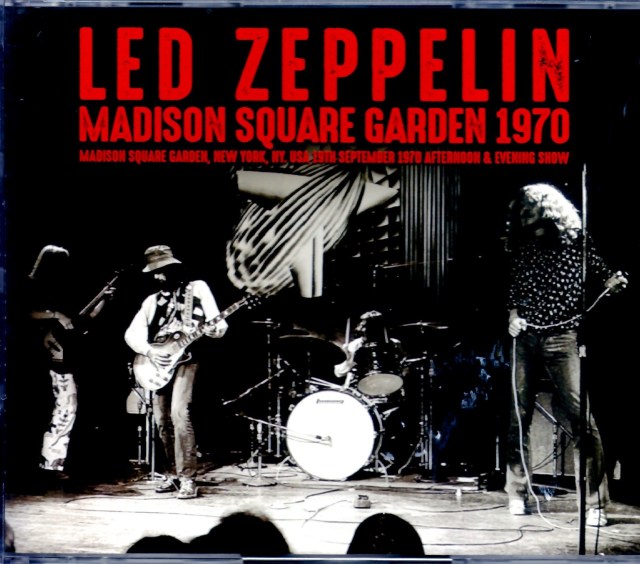

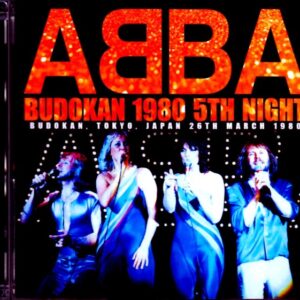
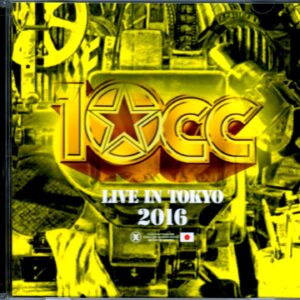
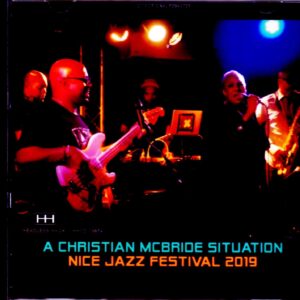
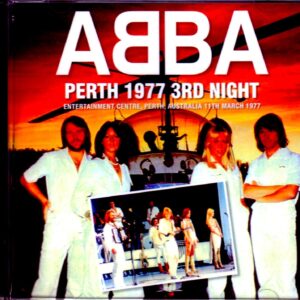
Reviews
There are no reviews yet.